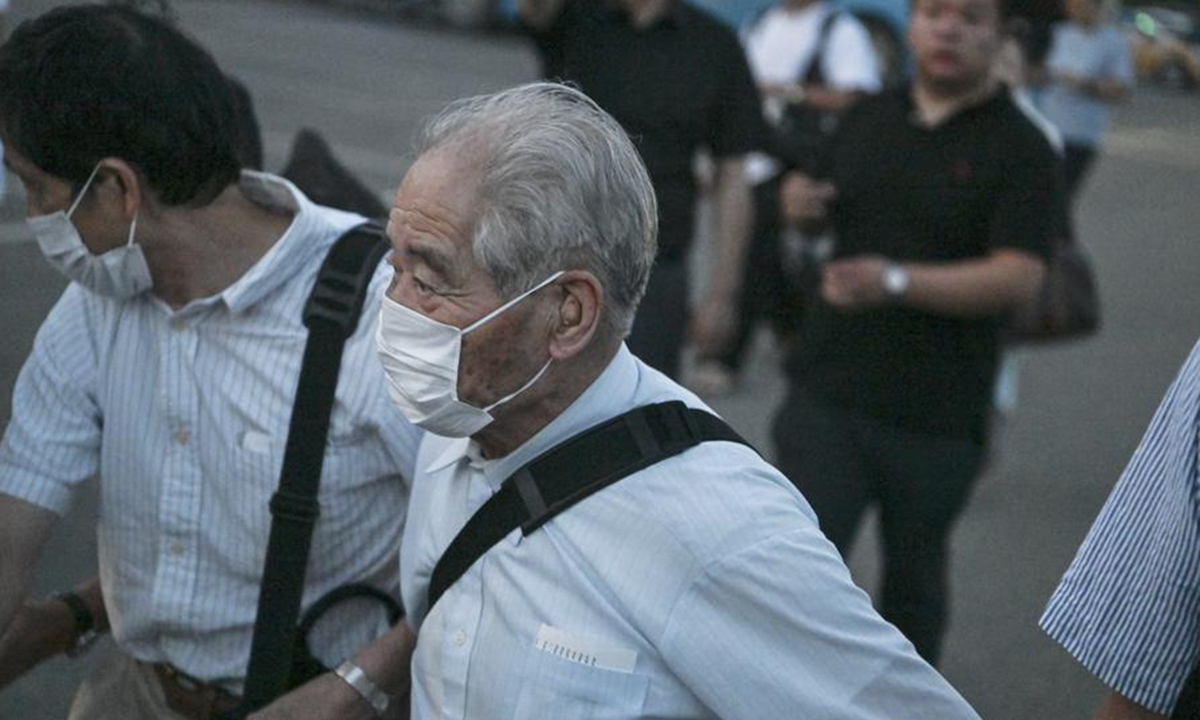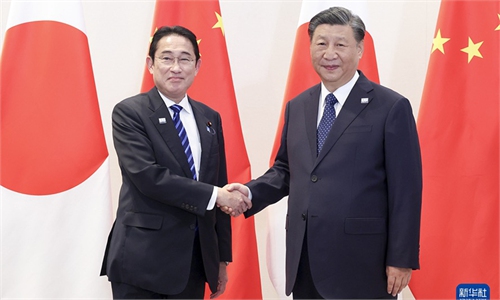Hideo Shimizu’s bow is also a question posed to Japan’s future: Global Times editorial

Hideo Shimizu arrives in Harbin, northeast China's Heilongjiang Province, Aug. 12, 2024. Photo: Xinhua
On Tuesday morning, Hideo Shimizu, a former member of Unit 731, the notorious Japanese germ-warfare detachment during World War II, identified the crimes of the Japanese army when visiting the Exhibition Hall of Evidences of Crime Committed by Unit 731 of the Japanese Imperial Army in the city of Harbin, Northeast China's Heilongjiang Province. He said the Japanese government has never shown genuine sincerity to apologize to China, and he himself has long wished for an opportunity to come to China to repent and apologize. He also hopes to encourage greater reflection and awareness among people. This act can be seen as a form of self-redemption and demonstrates the courage to confront history and reflect on past Japanese aggression. It stands in stark contrast to the Japanese government's stance on historical issues.
Unit 731 represents an extremely dark chapter in human history and is one of the principal pieces of evidence of Japan's militaristic conspiracy to conduct biological warfare and commit genocide. Between 1937 and 1945, Unit 731, under the guise of "researching disease prevention and water purification," conducted experiments on living Chinese, Korean, and prisoners of the war from China's allied forces to test the effects of biological and chemical weapons. These experiments included live dissections, burning of living subjects, frostbite trials, plague experiments, and blood exchanges between humans and animals, as well as creating specimens from pregnant women and infants. These inhumane acts crossed all bounds of human decency. According to confessions from war criminals who served in Unit 731, at least 3,000 military personnel and civilians were killed due to these experiments. During the entire Japanese invasion of China, over 1 million Chinese soldiers and civilians died as a result of Japanese biological warfare. The crimes of Unit 731 and Japanese militarism are beyond description.
After Japan's surrender, most members of Unit 731 evaded prosecution due to the Japanese government's extensive cover-up and US protection. Some even went on to hold prominent positions in the Japanese government and society. However, a few individuals with a remaining sense of conscience have voluntarily come forward to admit their crimes. Shimizu was among the last batch of Unit 731 Youth Corps members sent by Japan to Harbin, where he spent more than four months witnessing the war crimes committed by the unit. He was both a participant in Japan's militaristic aggression and a victim himself, having once consumed bread contaminated with pathogens and was on the verge of becoming a subject of live dissection. Japanese militarism was the root cause of immense suffering and remains a common enemy of both the Chinese and Japanese peoples. Shimizu's personal experience once again confirms this truth.
Shimizu repeatedly spoke about the Japanese government's cover-up of historical truths and the obstacles and interference the government set for him. He even said that, compared to the criticism from the Chinese, he might face even harsher reproach from the Japanese government, saying, "maybe they would rather I were dead." Shimizu has the courage to come forward and repent for his sins. The Chinese people will not make things difficult for him, but will question what exactly the Japanese government is trying to hide, evade, or cover up. Shimizu hopes that through his personal actions, he can awaken more people to reflect and be vigilant, cherish the hard-won peace, and avoid the tragic repetition of war. His sobriety highlights the mistakes and absurdity of the Japanese government.
August 15 marks the surrender of Japanese forces. In recent years, some Japanese politicians have continuously distorted and glorified the history of aggression, openly worshiped or paid tribute to the Yasukuni Shrine, and made moves to revive militarism. This is highly consistent with the Japanese government's continuous breach of its commitments under the pacifist constitution and exclusively defense-oriented policy, efforts to significantly increase military spending, develop offensive weapons, introduce old thinking of group confrontation into the Asia-Pacific region, and move further toward political and military right-wing tendencies. The reason why Japan deliberately distorts and covers up history is to undermine the public opinion foundation of the pacifist constitution, overcome the obstacles caused by historical responsibilities to restart militarization, and conceal its ambitions to gain geopolitical interests.
In recent years, Japan has made efforts to portray itself as a "peaceful" nation, but has still struggled to gain acceptance and trust from the international community. This is largely due to the Japanese government's failure to confront its history. At 94 years old, Shimizu is the only living member of Unit 731 who is willing to publicly expose its crimes. He is also likely the last former member to return to Harbin. His trip left behind a huge question mark. Under the distortion of the Japanese government and right-wing forces, the historical views of the younger generation in Japan are being significantly influenced, and the Japanese society is increasingly showing a right-wing tendency. Will a Japan that chooses to "forget" its history repeat it? This is the greatest concern for the anti-war forces in Japan, and what neighboring countries and the international community are vigilant of.
In front of the UNESCO headquarters building, there is a stone monument with the following inscription in multiple languages: "Since wars begin in the minds of men, it is in the minds of men that the defences of peace must be constructed." For Japan, to construct the defences of peace in the minds of men, first and foremost, it requires a deep reflection on and correct understanding of history. Japan hopes to stand tall in the international community, but first it must bow down before history. When Hideo Shimizu bows in front of the monument to "apology and the commitment to peace without war," it is not only an apology to history, but also a resounding question about Japan's future path.

